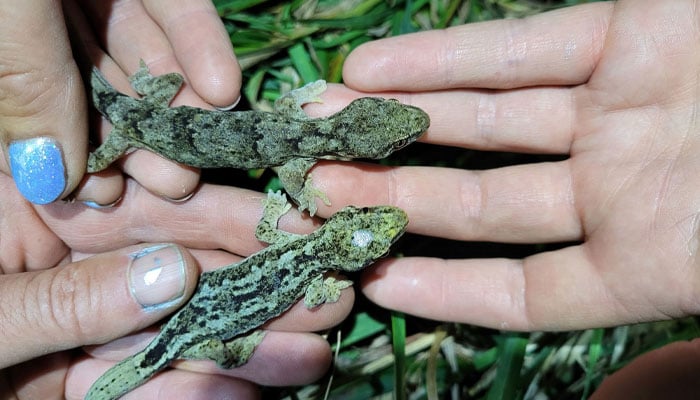
Two thin and bony reptiles, Antoinette and Brucie-Baby, at the age of 64 and 60 could be the world's oldest Waitaha geckos.
Marieke Lettink, a reptiles and amphibians expert, who was part of the team that found the pair of geckos on Motunau Island described the discovery as "exciting."
She also added that seeing the animals, who are "older than us and still out there doing there thing," was a humbling experience.
Antoinette and Brucie-Baby were found during a five-yearly survey on the island.
While expressing her optimism about coming across more older geckos, Lettink added, "That also means it's worth going back in five years' time because we don't know how long they can live for. Every time we go, every trip we've done ... the oldest gecko we catch is always older than us."
Related: World’s oldest ‘pyramid’ may be nature’s work, not man-made, scientists claim
During each survey, the team sets up a grid of traps on the small island, typically catching a few hundred geckos over a few days, usually the reptiles come out at night, so the team also goes hiking in the dark with flashlights.
The survey was initiated in 1960s , when the late conservationist Tony Whitaker began marking geckos on the island with a practice called Toe clipping, which involves clipping a certain number of toes on the geckos, each with a unique pattern.
The system, which has now been abandoned by the Department of Conservation, helped the team identified Whitaker's markings on Antoinette and Brucie-Bay, who are named after Whitaker and fellow conservationist Bruce Thomas.
The reptiles were already adult when they were marked, hence, there is a massive chance that they are much older than the initial recorded age of 60 and 64.
That's far older than the average lifespan of geckos worldwide, and this discovery places Waitaha geckos in the top ranks of other long-living lizards, most of whom are much larger.
One of the main reasons the reptiles have managed to survive for so long is likely due to Motunau Island being a predator-free region, along with cool climate and the island lifestyle.
The team is also hopeful to return in the next five years to find some more originally tagged 1960s geckos.
Related: World's largest coral discovered in Pacific Ocean: ‘Visible from space’












